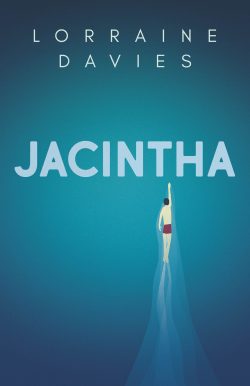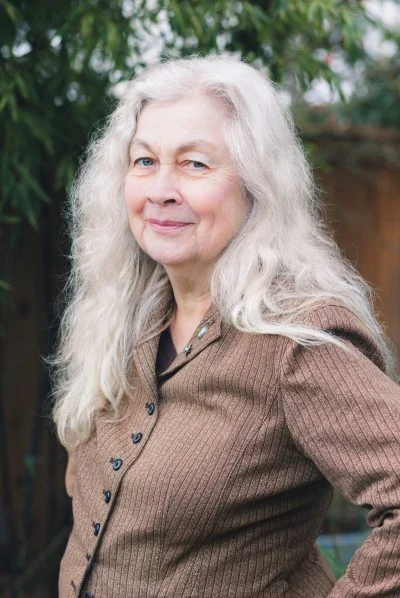#726 Beware the Shakespeare seminar
Jacintha
by Lorraine Davies
Toronto: Dundurn, 2019
$21.99 / 9781459744554
Reviewed by Moira Laidlaw with Ginny Ratsoy
*
 Lorraine Davies’ Jacintha is a novel of secrets, mistakes, and forgiveness. It tells the story of Richard Wilson, a professor of English Literature at the University of British Columbia. After a traumatic landslide destroys his house and takes the life of his student boarder, Richard finds himself unable to cope. His marriage begins to deteriorate and he feels the need to change his life in a major way. When a young woman, Jacintha, strolls into his Shakespeare seminar on The Tempest, he finds himself inexplicably drawn to her despite himself. Little does he know that Jacintha has a secret that she plans to use to destroy him.
Lorraine Davies’ Jacintha is a novel of secrets, mistakes, and forgiveness. It tells the story of Richard Wilson, a professor of English Literature at the University of British Columbia. After a traumatic landslide destroys his house and takes the life of his student boarder, Richard finds himself unable to cope. His marriage begins to deteriorate and he feels the need to change his life in a major way. When a young woman, Jacintha, strolls into his Shakespeare seminar on The Tempest, he finds himself inexplicably drawn to her despite himself. Little does he know that Jacintha has a secret that she plans to use to destroy him.
One interesting facet of this novel is its connection to Shakespeare’s The Tempest. Much of the first half of the novel’s plot revolves around Richard teaching a seminar where he tasks his students to write a modern take of The Tempest with an environmental message. Certain aspects of Jacintha mirror The Tempest in interesting ways. Both stories feature themes of family, revenge, and forgiveness, and both begin with a calamity. In Jacintha, the calamity is the landslide. In The Tempest, it is the shipwreck, which strands several characters on an island. Both stories also feature familial betrayal as well as revenge on the betrayers, though they both ultimately end in the forgiveness of all the characters involved without much in the way of confrontation. This connection between Jacintha and The Tempest provides a unique lens through which to view Davies’ novel, adding complexity to the themes that are already present.

This novel is not what I expected it to be. From reading the book jacket blurb, I expected it to be a dark thriller, filled with secrets, infidelity, obsession, and violence; and while all of these elements are present in the book, the style is more subtle and subdued than I expected. The focus is less on the thrilling elements than how Richard reacts to them. A large portion of the book is devoted to describing Richard as he goes about his daily life, suffering from depression and post-traumatic stress after the landslide and attempting to deal with the twists and turns that his life is taking. This isn’t necessarily negative, as it makes for a much more introspective and thought-provoking read, but the casual reader expecting a thriller may find Jacintha a demanding read due to its more introspective nature.
This novel is also steeped in realism, almost to a fault. Davies sets Jacintha in Vancouver, which she describes to great effect in poignant, melancholic detail. Indeed, Davies’ greatest strength is the poetic quality of her prose, which sets the tone of the novel magnificently. It is to her credit that she doesn’t shy away from the dirtier and less comfortable aspects of the city, and she sets a few scenes on East Hastings Street and describes some of the harsh acts that go on there. This stark realism is also present in the character of Richard, who lacks motivation due to his depression. While his purposelessness is understandable, it makes him into a very passive character and contributes to the slow pacing of the story.

At first I thought that the novel was going to be a slow burn that would speed up near the end, but then found that it never did. This lack of climax is perhaps the most realistic element of Jacintha. As the novel progresses, the story builds inexorably to a conclusion that is never fully realized. The reader may initially feel unsatisfied, and even a bit foolish for expecting that there would even be a satisfying conclusion after the drama and heartbreak of the novel. However, Jacintha captures an element of life that I have not experienced in any other book. It emphasizes that there aren’t always satisfying conclusions to be had, and that real life does not often follow a plot in the way that fiction is expected to. Life has loose threads and is often unsatisfying, and Jacintha reflects this. By portraying this accurately, Davies presents a book that is both thought-provoking and true to life.
Overall, Jacintha is a well-written exploration of interesting and profound moral quandaries that will leave careful readers questioning themselves and their own expectations.
*


Moira Laidlaw was born and raised in Kamloops. She currently attends Thompson Rivers University where she will soon receive a Bachelor of Arts degree with a major in English and a minor in creative writing. Moira enjoys reading and writing in all genres, though her favourites are fantasy, science fiction, romance, and literary fiction. Ginny Ratsoy is Associate Professor of English at Thompson Rivers University, where she teaches Canadian Literature and delights in mentoring promising undergraduate students through service learning, research, and co-writing for The Ormsby Review.
*

The Ormsby Review. More Books. More Reviews. More Often.
Publisher and Editor: Richard Mackie
The Ormsby Review is a journal service for serious coverage of B.C. books and authors, hosted by Simon Fraser University. The Advisory Board consists of Jean Barman, Robin Fisher, Cole Harris, Wade Davis, Hugh Johnston, Patricia Roy, David Stouck, and Graeme Wynn. Scholarly Patron: SFU Graduate Liberal Studies. Honorary Patron: Yosef Wosk. Provincial Government Patron since September 2018: Creative BC
“Only connect.” – E.M. Forster